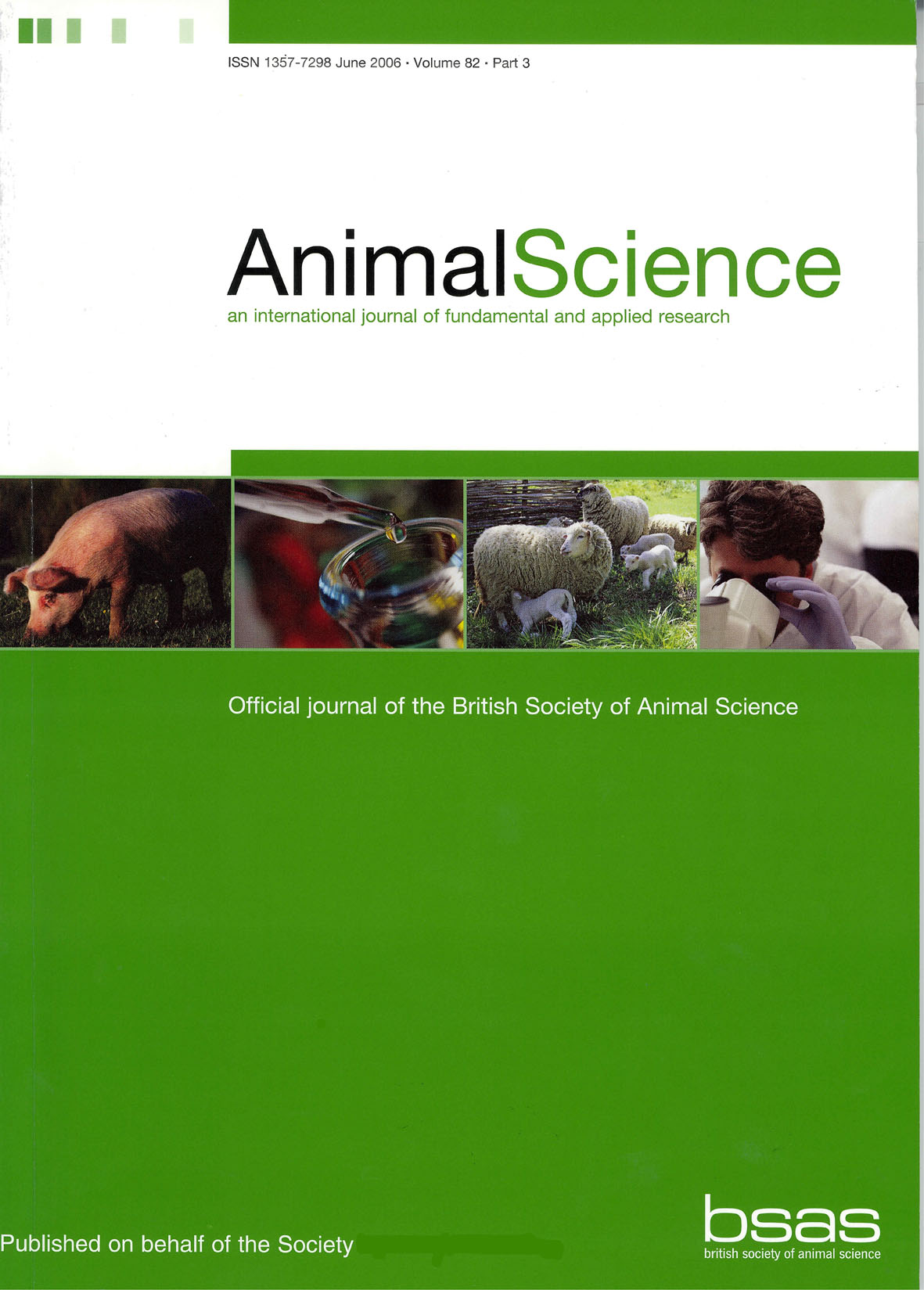Article contents
Tests of two theories of food intake using growing pigs 1. The effect of ambient temperature on the intake of foods of differing bulk content
Published online by Cambridge University Press: 18 August 2016
Abstract
An experiment was carried out on pigs to provide a test of two current conceptual frameworks available for the understanding and prediction of food intake. Framework 1 assumes that food intake will be that which allows potential (genetic) performance to be achieved. If this is not achieved then it is because intake is being constrained. Framework 2 sees food intake as being a consequence of a process of optimization such that biological efficiency (the ratio of net energy ingested to oxygen consumed) is maximized. Both frameworks predict that a reduction in temperature will increase the intake of a high quality food. For a food of low quality framework 2 predicts that intake will also be increased when temperature is decreased while framework 1 predicts that it will not. This difference between the predictions of the two frameworks allows them to be tested by means of an experiment in which foods of different quality were given to animals at different environmental temperatures.
Forty pigs were randomly allocated to a control (C) food based on micronized wheat with 13·1 MJ digestible energy (DE) and 232 g crude protein (CP) per kg fresh food, or one of two high bulk foods. The high bulk foods contained either 650 g/kg of unmolassed sugar-beet pulp (SBP) or 650 g/kg of wheat bran (WB). Half the pigs were maintained at a thermoneutral temperature of 22ºC for 14 days followed by a cold temperature of 12ºC for 14 days. The other half were maintained at 12ºC for a period of 14 days followed by a temperature of 22ºC for 14 days. Food intake was recorded daily and live weight twice weekly.
There was a highly significant food ✕ temperature interaction ( P < 0·001) for food intake. A reduction in temperature resulted in an increase in food intake on C and WB but had no effect on the intake of SBP. There was a highly significant effect of both temperature and food on intake ( P < 0·001). A reduction in temperature resulted in a significant increase in food intake, intake on WB was higher than that of either C or SBP. There was no overall effect of temperature on live-weight gain although a reduction in temperature resulted in a non-significant increase in the gain of C and reduction in the gain of WB and SBP. There was a highly significant effect of food ( P < 0·001) on live-weight gain, as gain on C was higher than that on either WB or SBP.
The results of the experiment were in agreement with the predictions set forward by the first framework that growing pigs are eating to achieve maximum performance subject to constraints.
Keywords
- Type
- Non-ruminant nutrition, behaviour and production
- Information
- Copyright
- Copyright © British Society of Animal Science 2001
References
- 22
- Cited by


